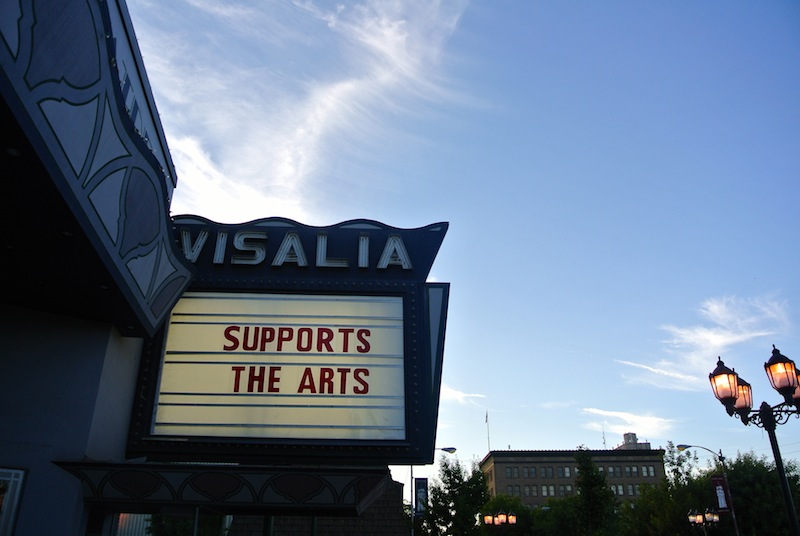
For towns like Visalia, California, the expression “arts for art’s sake” doesn’t make much sense. In Visalia—as in other emerging arts towns throughout the U.S.—art isn’t just there for its own sake: art is there to energize a community and help people live well. 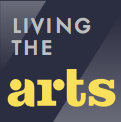 The Central Valley town’s recent “Taste the Arts” festival was a case in point: It brought together a crowd ranging from 20-something native Visalians who have returned home to create visual art to entire families from neighboring towns. Making events like this succeed for artists and the community alike requires more than financial investment. In advance of the Zócalo/James Irvine Foundation event “Can the Arts Revive a Town?”, we asked arts organizers from around California the following question: What does a city have to do–besides give financial support–for the arts to improve civic life?
The Central Valley town’s recent “Taste the Arts” festival was a case in point: It brought together a crowd ranging from 20-something native Visalians who have returned home to create visual art to entire families from neighboring towns. Making events like this succeed for artists and the community alike requires more than financial investment. In advance of the Zócalo/James Irvine Foundation event “Can the Arts Revive a Town?”, we asked arts organizers from around California the following question: What does a city have to do–besides give financial support–for the arts to improve civic life?
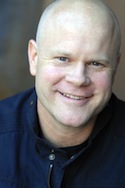
I think the most important thing a city can do for the arts, perhaps even more important than giving cold, hard cash, is to provide space. Increasingly, real estate is very hard to come by, and this is doubly true for areas that are easily accessible to a large cross section of a community’s population.
Space, for any of the arts, is a vital part of the “event” of participation. This is especially true for the performing arts. In the theater, civic pride and a sense of community are engendered when people gather and share the intense experience of visceral storytelling. Shared experience builds bonds and leads people to “we” instead of “I.” If the city provides that space and helps to make it accessible to diverse citizens, then not only do people actively participate in the community-building spirit of the arts, but the gratitude and sense of belonging that comes from the communal experience is transferred to the city.
“We are so lucky to live here,” and “I love this town,” translate into a lot of measurable benefits for a community, from citizens who want to be active in government to lower crime rates. When cities choose to give the arts a place, it signals to its citizens that their quality of life is important, and that cities are not just places we gather for survival, but where we come together to celebrate the shared human experience.
Mike Ryan is the founding artistic director of Santa Cruz Shakespeare, a new, independent, nonprofit theatre company created with grassroots support when its predecessor, Shakespeare Santa Cruz, was closed after 32 years. He is also an actor and appeared in As You Like It and The Merry Wives of Windsor in the company’s 2013 inaugural season.
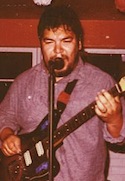
What can a city do to bolster the arts? Simply put, nothing at all. And I don’t mean a city is incapable of having an impact. Rather, cities can do their part by being less obstructive and letting artistic environments grow naturally. Artists who love their craft will always find ways to share it. Whether it’s hosting an art show in some industrial building or packing a living room for a hardcore show, artists find a way. But often these efforts are stifled due to local governments’ concerns.
I come from a DIY background, which means there’s no money and very few connections to non-underground support for the art I create and events I organize. Paying for permits is an impossibility. Eliminating permitting and other roadblocks by providing exemptions for arts events can go a long way toward fostering a music and arts scene.
I respect that a neighbor doesn’t want metal music blaring next door at 2 a.m. But there should be a happy medium where artists can express themselves without breaking some unknown zoning rule. Regulations are in place to protect the public well-being, but if it’s at the expense of a community coming into its own, is it helping? Sometimes, if a city wants to improve civic life, it needs to learn to be OK with breaking some rules.
Cristobal Carrillo is the co-founder and co-organizer of the Spanspek Music and Arts Festival, a curated event of local arts and music held annually in Orosi, California. Carrillo also performs in the garage rock band Werebear and indie band Macondo. Israel Flores, the co-founder and co-organizer of the Spanspek Music and Arts Festival, photographer, and singer/songwriter/guitarist for the indie band Macondo, also contributed to this piece.
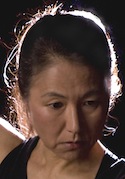
In order to develop an art-conscious community, a city can act as a catalyst to connect art and business. The best way to do this is for the city to facilitate the establishment of an organization that helps put together a list of available facilities and venues for different kinds of art forms, lists of arts and artists, and available art services.
Such an organization could take the form of a member-based arts co-op. Local business, schools, and individuals can become members in order to share facilities, talents, and resources. Businesses that participate in this arts co-op could give members discounts on their services and products in exchange for brand recognition and loyal customer support. Schools and community centers that have space can give special rates or free rentals in exchange for skills workshops and free performances. Restaurants and pubs can hold community arts events that attract more partners. These sorts of collaborations are often happening communities already, but a centralized arts co-op with social networking support (such as a dedicated Facebook group) can help artists and community members easily identify one another in order to form collaborative relationships more readily and easily.
It is sometimes hard to assist with cash, but a formalized barter system and centralized union may help artists and the community to connect with each other and help the arts thrive in the community.
Ikuyo Conant is the artistic director of Watsonville Taiko and the founder of Shinsho-Mugen Daiko, a Taiko drumming community of performers and supporters in Watsonville, California.



